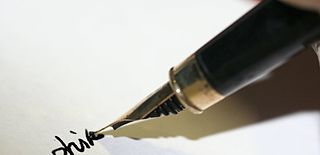Authors appear to be very intelligent, don’t they? Well, a lot of the knowledge they’ve gained for writing is through research. And there are some bizarre topics that they’ve researched. I’m sure you’d be surprised, amused, or horrified if you went through an author’s Google search history. But don’t worry, it’s all for the book!
 Question 68 – What are some of the most unusual things you’ve researched for your writing?
Question 68 – What are some of the most unusual things you’ve researched for your writing?
Whether or not a dual star system can have a planet orbiting one of the stars. There seems to be one line of thinking that it can be done if the planet’s orbit is at a 90 degree angle to the plane on which the two stars orbit each other. I also saw an article that said it was not possible, and tried to explain why with mathematical equations. I gave up trying to understand it, and I went with the first article because it fit my story. 🙂
Oh I’ve researched LOTS of stuff. The most interesting to me was eye enucleation, but some recent ones include properties of silk armor, pre-modern heating and cooling, farming techniques, volcanic hazards, photosynthesizing sea-slugs, bee vision, unusual riding animals, fungus crafts, scar mobility exercises, eyeliner tattoos, and alpine survival. All relevant to the story/world, even the sea-slugs!
As with most writers, my search history can be quite disturbing depending on what project I’m working on. I’ve can’t think of anything too far out there, but I’ve definitely hunted down a lot of details on dead bodies and everything between the best horse breed to pull a gypsy wagon and various methods of space travel.
Ooh…I have to think about that. I’ve seen some pretty insane research topics pop up during NaNoWriMo, that’s for sure, but those weren’t usually mine. Actually, come to think about it, I don’t do a whole lot of researching because I write more fantastic stuff, the kind of stuff you can mostly just make up from scratch. I did once research how far a human can walk in a single day because I was worried that I was being ridiculous in my estimations of time passing during a long journey. I’ve looked up information on guns because I didn’t want to sound like I had no idea what I was talking about. Ooh…here’s a good one…while I was writing my zombie novel, “Nowhere to Hide”, I took to Google to find out if it was feasible for a 130-ish-lb girl to use a sword to hack right through another human’s neck. That one probably got me on a few government watch lists.
Oh, my. Where to begin…? The fact that it takes longer than anyone wants to think about to explosively decompress? The effects of nuclear radiation on human tissues? Serial killers? Ancient Sanskrit? Penis length of great cats? I mean, who doesn’t want to know that? Right? The list goes on.
The only one I can think of off the top of my head would be the different kinds of acid and which one is used in pool cleaning. Like most writers, however, I research the wildest of things in pursuit of my craft. I’m sure there are much more heinous things out there I’ve Googled that I simply cannot recall. ^_^
My research into the Black Death turned up some strange things. I specifically looked into plague infections in animals, human superstitions surrounding the plague, and previous attempts to treat it. The topic may not be as strange as some of the others mentioned in this post, but the results sure were.
Hahaha! I often say that if anyone peeked at my search terms on Google, they’d wonder a) what kind of disease I have, b) how am I hiding all those addictions, or c) what kind of psychopath I am. I wouldn’t be surprised if I’m on some sort of international watch list for the criminally insane.
I spent an inordinate amount of time determining whether or not some characters were eating pottage or porridge at an inn. (It ended up being porridge, for those who want to know).
I also really enjoyed researching insults – it’s pretty cool to see how different terms have evolved into insults and to recreate that in my world-building. The key elements of insults: they are almost always derived out of religion or bodily functions, and often the conjunction of the two!
Thanks to the inspiration from a fellow blogger, every Friday I do a post where I answer questions my two kids have asked throughout the week.Therefore, I have had to look up everything from baby crows to the coldest temperatures on earth. I’ve looked up what blind people see and earthquakes. It’s great fun!
Geographic distribution of eye colors.
Whether or not you can “draw” a weapon or tool that isn’t in a sheath or holdster, or if there was another word for it.
Multiple instances of “I need a name that means X” result in spending a lot of time on baby name websites…and the fact that I’ve also researched pregnancy might give anyone spying on my search history a very wrong idea.
Which reminds me: the effects of certain drugs.
I’ve had a few interesting searches. For my Ariadne series, I’ve researched wind directions depending on latitude, the effects of an electromagnetic pulse on electronic systems, climate zones, injuries caused by a chisel, mineral hardness, and information about male and female plants. For my future Solar System series, I’ve researched Holst’s The Planets.
Future topics will be the psychological effects of rape, PTSD, government types, urban planning, and genetically modified plants and animals.
How about you?
What are some of the strangest things you’ve researched for writing? I wonder who has the strangest topic. Leave your answer in the comments below.
